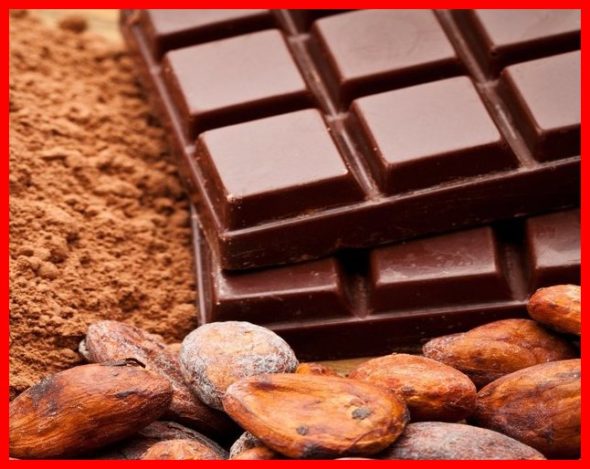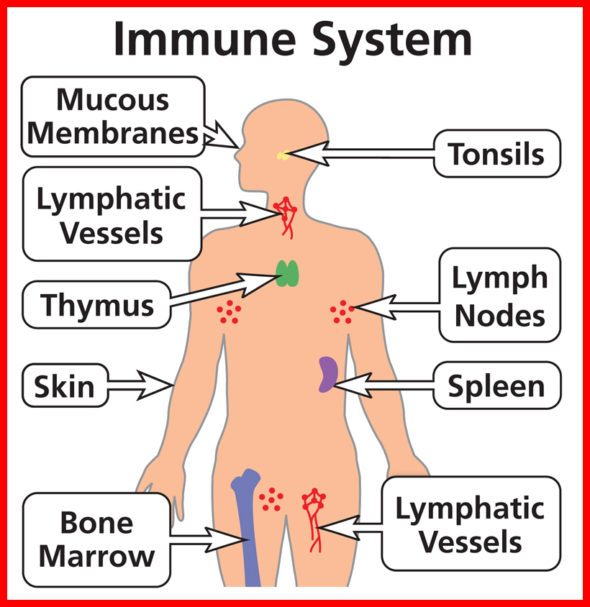The global chocolate market is set to rise from 2019-2023 as a medical study associated dark chocolate with health, brain boosting, physical immunity and a lower risk of cardiovascular diseases and diabetes.
20 March 2019
3,461 views
2 Comments
The chocolate industry is set to make huge profits this Easter, just as it continues to be proven by nutritionists and scientists to be key to our immune system.

The Bridge MAG. Image
Raw, organic, cold-pressed chocolate is believed to be the healthiest food available on the planet as new studies lift the lid on how dark chocolate might improve our brain health and strengthen our immune system.
 The Oxford Medical Online Dictionary defines the immune system as the organs and processes of the body that provide resistance to infection and toxins. Organs include the thymus, bone marrow, and lymph nodes.
The Oxford Medical Online Dictionary defines the immune system as the organs and processes of the body that provide resistance to infection and toxins. Organs include the thymus, bone marrow, and lymph nodes.
The Bridge MAG. Image
The global chocolate market research published in its January 2019 analysts‘ forecast report that ‘the global chocolate market is to grow at a CAGR close to 5% during the forecast period[…] the demand for healthier chocolates such as vegan, organic, and sugar-free chocolates has witnessed significant growth in recent years. This is due to the high preference for healthy living and awareness of the negative impacts of eating chocolates.’
Meanwhile, looking at how dark chocolate affects the immune system, Dr Lee Berk concludes after a study that: ‘Dark chocolate has serious potential from a health perspective. […] and may be a medicinal product if appropriately studied.’
In his future research, he wants to analyse if cocoa’s effects on the brain could help treat diseases such as dementia and autism.
The Oxford Medical Online Dictionary defines the immune system as the organs and processes of the body that provide resistance to infection and toxins. Organs include the thymus, bone marrow, and lymph nodes.
Medical breakthroughs in recent decades have dramatically improved our diets, thus our general health.
One of the pilot scheme studies led by Dr Lee Berk involving 10 healthy volunteer adults aged 25–50 are very encouraging.
Dr Berk is the Associate Dean of Research Affairs in the School of Allied Health Professions at Loma Linda in California. He analysed the participant’s brain waves with a machine called an E.E.G.
 An electroencephalogram (EEG) is a test used to find problems related to electrical activity of the brain. An EEG tracks and records brain wave patterns.
An electroencephalogram (EEG) is a test used to find problems related to electrical activity of the brain. An EEG tracks and records brain wave patterns.
The Bridge MAG. Image
For the scheme, blood samples were taken from the participants at study baseline. Follow-up blood samples were taken 2 hours after chocolate intake every day, as well as 7 days after baseline.
Follow the links below to read more:
1)
2)
Rachel Tcheungna, Author, Writer of
The Bridge Books and
The Bridge Magazine Editor.


 (7 votes, average: 4.86 out of 5)
(7 votes, average: 4.86 out of 5)
Le fameux cacao africain ?
Comme vous dites M. Mikhael,
Selon des récentes statistiques, “Les cinq premières nations productrices de cacao dans le monde sont : la Côte-d’Ivoire, le Ghana, l’Indonésie, le Cameroun et le Nigeria, avec un taux de 70% de production mondiale annuelle. Le Cameroun à lui seul exporte environ 200 000 tonnes par an.’’
Néanmoins, en 1822, c’est l’île de São Tomé et Príncipe la première terre où furent plantés, des cacaoyers apportés du Brésil comme plante ornementale par les colons portugais. (Aussi appelé l’Île Chocolat, le pays a été couronné 1er Producteur Mondial de Cacao en 1913.)
Les questions sur l’origine et/ou le commerce équitable du chocolat, ont fait couler beaucoup de sueur, de sang, d’encre et de salive: Les dés avaient été jetés depuis les accords de Breton Woods en 1944 …Le Club de Paris en 1956.
A ressasser les vieilles querelles, on perd parfois l’essentiel de vue. En gardant l’espoir que le commerce équitable rendra un jour justice aux braves familles de planteurs de cacao, n’hésitons pas de profiter au maximum de sa valeur nutritive.
Merci une fois de plus pour votre affirmation.
Bien cordialement.
L’éditrice.